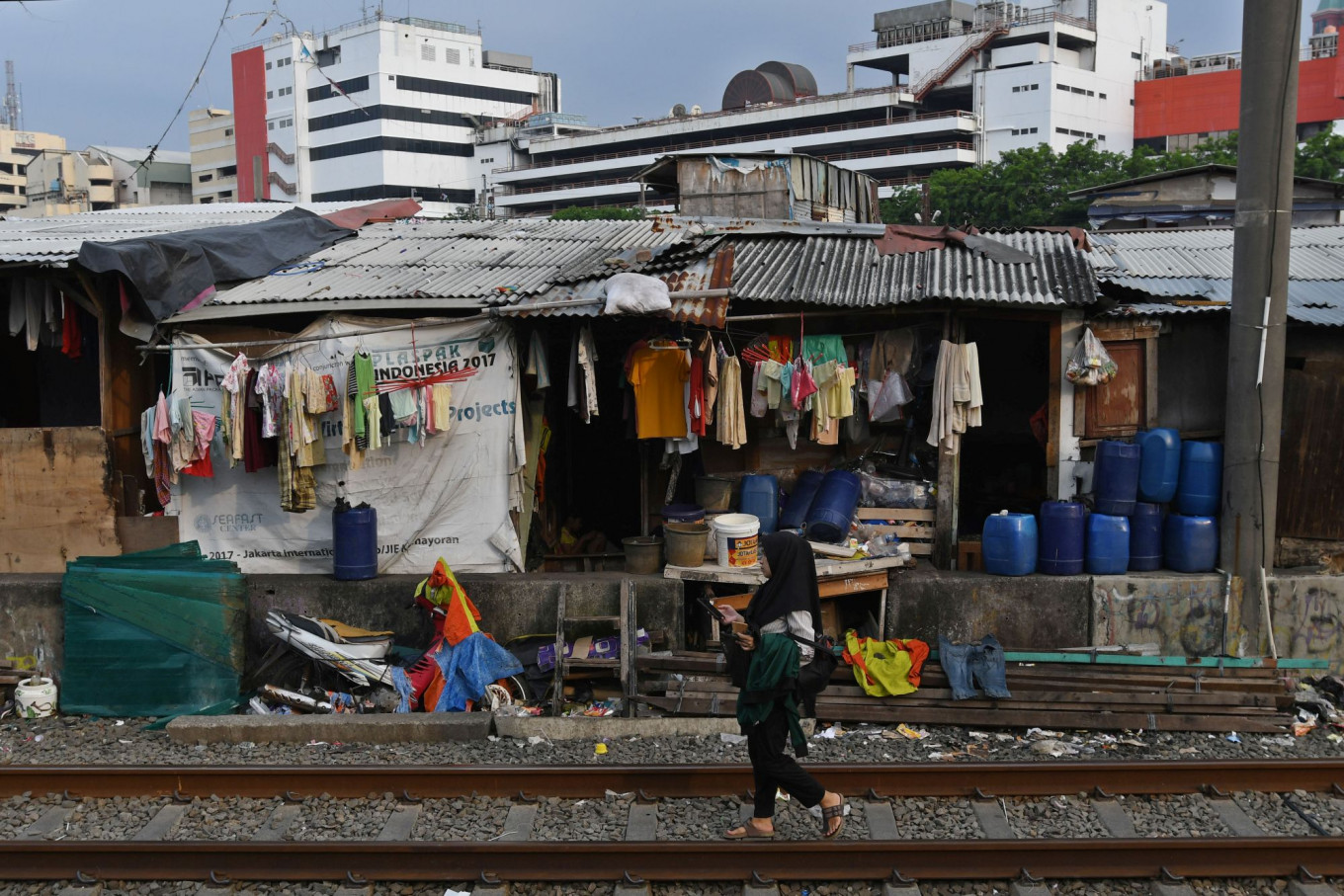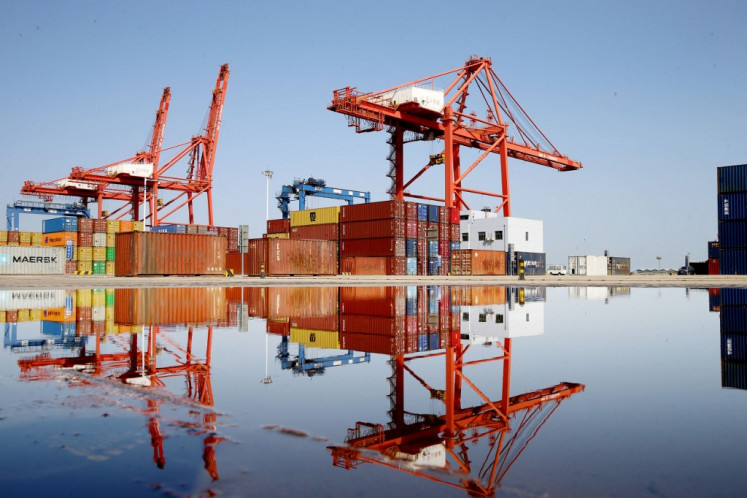Government ‘unlikely’ to end extreme poverty by 2024
“If we really want to reduce [extreme poverty] to zero, we need social aid to be holistic,” TNP2K official Rissalwan Habdy Lubis told reporters on Oct. 12.
Change text size
Gift Premium Articles
to Anyone

T
he government’s goal of eliminating extreme poverty is likely out of reach in the near future, says the National Team for the Acceleration of Poverty Reduction (TNP2K), a government think tank, as policymakers’ efforts and resources remain uncoordinated.
People who live on less than US$2.15 (Rp 33,020) a day are considered to be in extreme poverty, according to the widely used World Bank definition, and are unable to afford basic food expenses, let alone other primary needs.
The TNP2K said the most optimistic scenario had extreme poverty in the country dropping to no lower than 0.76 percent by 2024 from 4 percent last year, thereby missing President Joko “Jokowi” Widodo’s target of eliminating extreme poverty that year.
“If we really want to reduce [extreme poverty] to zero, we need social aid to be holistic,” TNP2K official Rissalwan Habdy Lubis told reporters on Oct. 12.
Lubis added that social aid had been held back by data issues – including recipients without identity numbers and difficulties coordinating funding for programs.
“Our social aid budget is split up among 22 ministries and 6 agencies, including the National Police and Indonesian Military [TNI],” Lubis said.
Read also: Poverty rate drops but inequality does not
He added that the group had only been able to convince four ministries to converge their efforts and funds for extreme poverty reduction.
The think tank has encouraged the use data from the acceleration of the elimination of extreme poverty (P3KE) initiative, but ministries and agencies have tended to stick to their own disparate datasets and measures.
President Jokowi has repeatedly asked ministries and agencies to agree upon the use of a single dataset, calling their failure to do so “sectoral ego”, and a law has been passed to ensure cooperation, but Lubis said that in practice, efforts remained very segmented.
On June 9, Jokowi highlighted a similar issue with land deeds.
“[Government agencies] go their separate ways, have their own egos. If this continues, the problems of this nation will be left unsolved,” Jokowi said in a speech in Wakatobi, Southeast Sulawesi.
Executive Office of the President (KSP) chief expert staffer Edy Priyono said intra-agency coordination was difficult and often a “luxury”, but he claimed officials would not stop trying.
“The President has set the target. Therefore, it’s not about ‘Is it possible?’, but ‘How do we make it possible?’. So far, we remain optimistic,” Edy told The Jakarta Post on Oct. 13.
Edy added that the government was seeking to optimize and converge programs across ministries and agencies. This included urging them to use P3KE data to improve the accuracy of each program.
Other efforts were to include an “empowerment program” for people in extreme poverty, as well as infrastructure development in areas suffering from widespread extreme poverty.
The Social Affairs Ministry did not immediately respond to requests for comment.
Read also: G20 finance chiefs agree to help debt-distressed countries
Ah Maftuchan, executive director at Jakarta-based think tank The Prakarsa said the government would have to ensure equitable access to basic needs like health care, clean water and education, among many others, in disadvantaged regions and villages.
Just providing one element was not enough, he said, adding that access “must be reliable as well in terms of quality and sustainability”.
“We must approach this with a multidimensional perspective. Poverty is not just about social aid or giving money,” he told the Post on Oct. 13.
Bhima Yudhistira, executive director at that Center of Economic and Law Studies (CELIOS) said on Oct. 14 that he felt the path to eliminating extreme poverty had become more difficult, given inflation risks stemming from subsidized fuel price hikes, which would increase the price of food and transportation, as well as many other goods and services.









